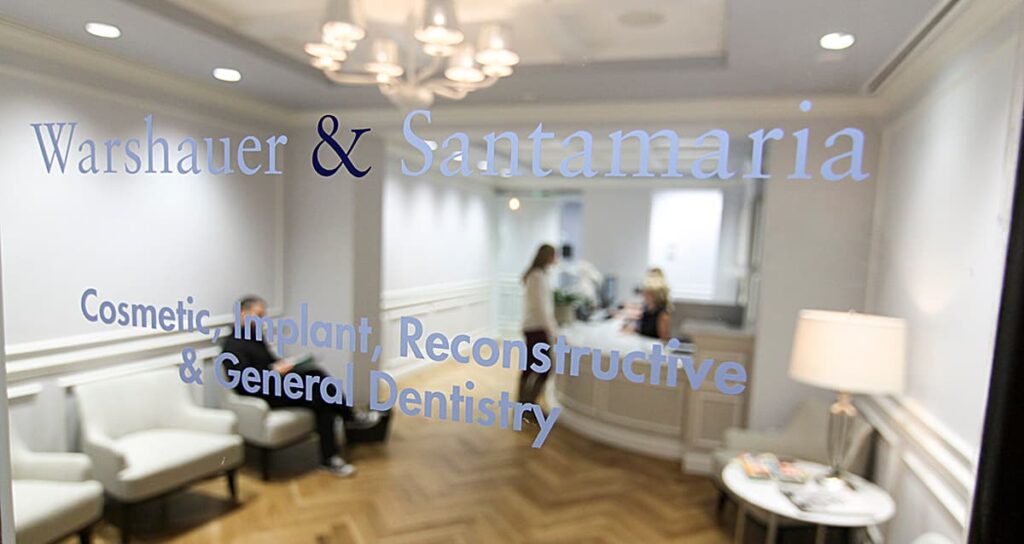At our dental practice in Back Bay, we understand the unique challenges faced by patients living with Alzheimer’s disease or dementia when it comes to dental care. That’s one of the reasons our practice decided to be one of the few that offer sedation dentistry in Boston. IV sedation plays a key role in addressing the specific needs of Alzheimer’s and dementia patients and how our practice strives to deliver exceptional care to this vulnerable population.

Challenges in Dental Care for Alzheimer’s & Dementia Patients:
Dental hygiene serves as a cornerstone of holistic health. However, dementia patients are at higher risk of dental issues due to various factors.
- Impaired Self-Care Abilities: Cognitive decline can compromise individuals’ ability to execute routine dental tasks, such as brushing and flossing, resulting in plaque accumulation, cavities, and periodontal disease.
- Altered Dietary Habits: Difficulties in chewing or swallowing, prevalent among dementia sufferers, often steer dietary preferences toward soft, sugary foods, exacerbating the susceptibility to dental decay.
- Medication-induced Effects: Many medications prescribed to manage dementia symptoms induce xerostomia (dry mouth), increasing vulnerability to dental caries and gingival inflammation.
- Behavioral Complexities: Manifestations of fear, confusion, or agitation may lead dementia patients to resist dental care, posing formidable challenges for caregivers striving to ensure consistent oral hygiene practices.
As a dental practice, we recognize that conditions such as Alzheimer’s and dementia can present significant challenges in maintaining oral health due to cognitive decline, communication barriers, and behavioral issues.
- Communication Barriers: Patients with Alzheimer’s or dementia may struggle to communicate their needs and symptoms effectively, making it difficult for dental professionals to assess and address oral health concerns.
- Behavioral Issues: Behavioral changes such as agitation, aggression, or resistance to care are common in Alzheimer’s and dementia patients, posing challenges during dental appointments and increasing the risk of injury or accidents.
- Anxiety and Fear: The unfamiliar environment and sensory stimuli associated with dental visits can provoke anxiety and fear in individuals with cognitive impairments, further complicating the treatment process.
The Role of Sedation Dentistry for Dementia Patients
Sedation dentistry, and especially IV sedation, are used in our Boston dental office to help with the dental challenges that people with Alzheimer’s disease or dementia face. IV sedation is a safe and effective method for managing anxiety and discomfort in dental patients, including those with dementia. Here are some of the benefits that can e seen with sedation dentistry:
- Enhanced Relaxation: IV sedation induces a state of deep relaxation, allowing patients to remain calm and comfortable throughout the dental visit.
- Improved Cooperation: Sedation helps mitigate behavioral issues and resistance to care, enabling our dental team to perform necessary procedures efficiently and effectively.
- Minimized Discomfort: By keeping patients relaxed and still, IV sedation minimizes discomfort and reduces the risk of injury or complications during dental treatment.
- Comprehensive Care: With IV sedation, we can address multiple oral health issues in a single visit, minimizing the need for additional appointments and reducing overall stress for patients and caregivers. This includes long procedures such as dental implant placement.
Our Dental Office’s Approach to Sedation Dentistry
Here is what patients and caregivers can expect from our practice when it comes to sedation dentistry:
- Comprehensive Assessment: We conduct a thorough evaluation of each patient’s medical history, cognitive status, and oral health needs to develop personalized treatment plans tailored to their specific requirements.
- Gentle and Patient-Centered Care: Our team has a gentle and compassionate approach, ensuring the comfort and well-being of Alzheimer’s and dementia patients throughout the dental visit.
- Ongoing Monitoring and Support: We closely monitor patients during and after dental procedures to ensure they recover safely from sedation and address any concerns or complications promptly.
At our practice, we are committed to providing exceptional dental care for patients with Alzheimer’s and dementia. Through the use of IV sedation and a patient-centered approach, we strive to make dental visits more accessible, comfortable, and stress-free. If you are looking for a sedation dentist that can care for patients with cognitive disabilities with we’d be happy to welcome you to our practice.